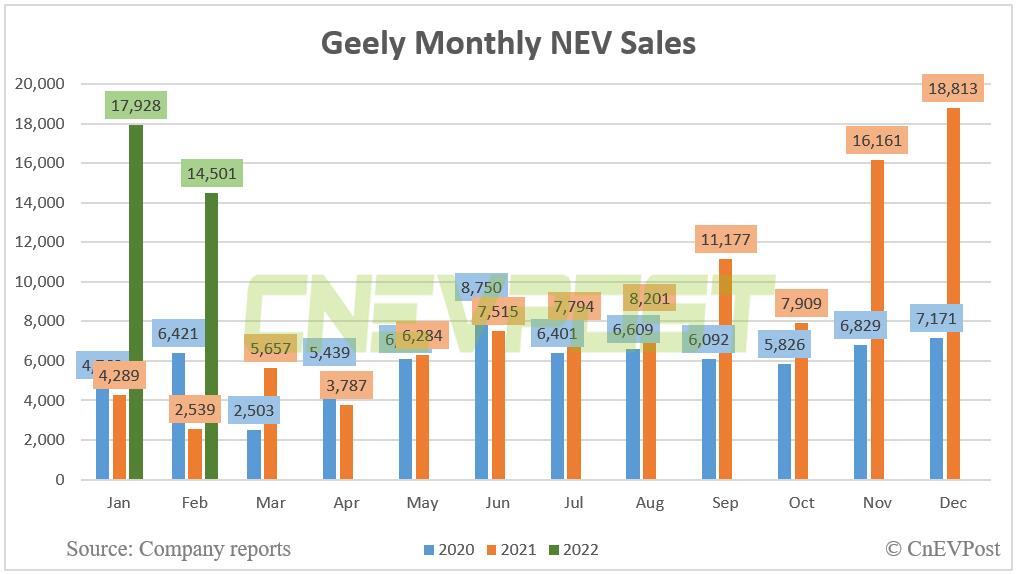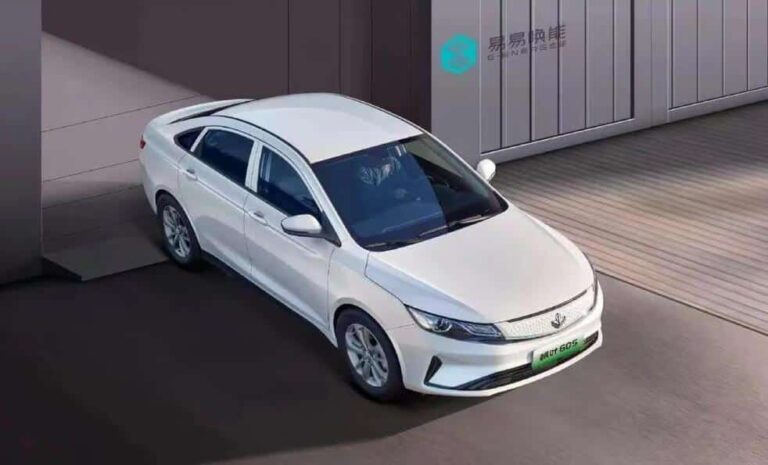Geely sold 12,239 BEVs including battery swap-enabled models in February, up 1,430 percent from 800 in the same month last year.
The Geely Auto Group sold 14,501 new energy vehicles (NEVs) in February, up 471 percent from 2,539 units in the same month last year, but down 19 percent from 17,928 units in January, it said in figures released today on the Hong Kong Stock Exchange.
Geely's total sales of all vehicles in February were 78,478 units, up 2 percent from 77,221 units a year earlier but down 46 percent from 146,380 units in January.
The company said this was mainly affected by a shortage of supply of electronic stability program (ESP) chips and the Chinese New Year holiday.
Geely sold 12,239 battery electric vehicles (BEVs) that include models that support battery swap in February, up 1,430 percent from 800 in the same month last year.
Geely sold 2,046 plug-in hybrid vehicles (PHEVs) in February, up 114 percent from a year earlier. The company sold 216 hybrid electric vehicles (HEVs) in February.
The company and Lifan Technology, which it backs, formed a joint venture, Chongqing Livan Automotive Technology Co in late January to put more effort into the battery swap market.
Livan will launch multiple power form products in the future, Geely said previously, adding that it will build a smart battery swap ecosystem based on in-house developed technology to provide competitive products and services.
The Livan brand sold 1,618 vehicles in February, Geely data released today showed.
Geely also announced sales for its other brands in February, with Geometry at 7,705 units, LYNK & CO at 10,524 units and Zeekr at 2,916 units.
It exported 9,851 vehicles in February, up 35 percent year-on-year.

